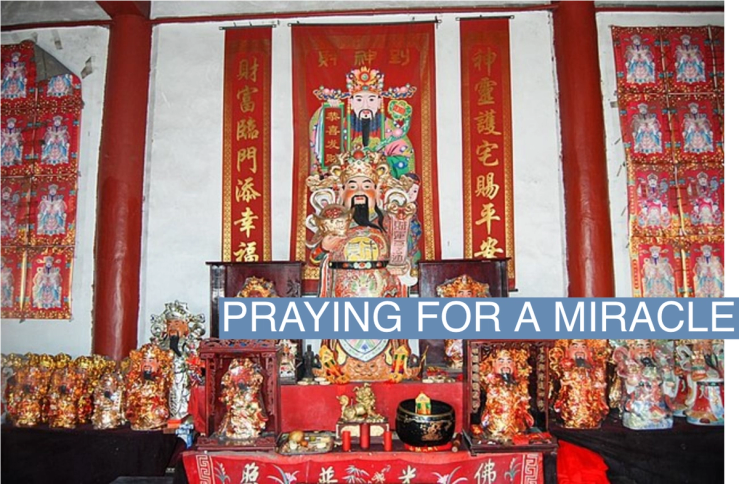The News
Wednesday marked day five of Lunar New Year, which means people in China celebrated Caishen, the god of wealth. For many Chinese internet users, the celebration is just wishful thinking.
The Chinese government is trying to promote a sense of optimism in the country amid worsening economic conditions, and on Wednesday the Ministry of Finance posted a short animated video inviting netizens to ask Caishen for financial blessings.
The post immediately went viral, quickly becoming the top trending topic on the twitter-like platform Weibo, with many users poking fun at what they saw as the Ministry’s ineffective monetary policies and its lack of self-awareness in telling people to “pray” for financial success.
“I want to pay 45% personal income tax in the New Year,” commented one user, a reference to China’s maximum income tax for those making over 960,000 yuan per year (about $133,700). “It seems that everyone is not short on love, but on money,” commented another.
Many Chinese investors and consumers are hoping the government finds ways to rejuvenate the sluggish economy during the Year of the Dragon. But the country faces increasingly strong headwinds, and analysts aren’t that confident about a swift recovery.
SIGNALS
Chinese youth are more concerned about wealth than love
Valentine’s Day and the day honoring Caishen are “competing for the stage” this year, but Chinese youth are more concerned about money than love, according to Phoenix Weekly, the lifestyle column of state broadcaster PhoenixTV. High rates of unemployment among young people remain one of the biggest headaches for Beijing, which has recently tried to downplay the extent of the issue. With few jobs available, many young people are prioritizing finding work and income before settling down with a partner. People “cannot afford to kneel down and propose,” according to Phoenix Weekly. Valentine’s Day gifts like jewelry and clothing are “likely more expensive than ordinary people’s year-end bonuses,” the blog opined.
The property slump and deflation aren’t helping with fortunes during Year of Dragon
Chinese state media previously predicted a record-breaking amount of travel would take place during Lunar New Year as signs emerged that the economy was rebounding. But despite low prices, Chinese consumers are still expected to spend less on goods and gifts during the holiday season than before the pandemic, according to analysts interviewed by the Australian Financial Review. Official data will not be available until March, but authorities’ failure to coherently communicate their response to the decline in equity markets “certainly has not helped” boost consumer confidence, one analyst told the AFR. And while the slump in real estate investment — triggered by liquidity crises at several property giants over the last year — is currently the biggest drag on the economy, authorities are reluctant to enact more aggressive stimulus packages for fear of adding to the nation’s large debt pile, Bloomberg reported.
Hong Kong is optimistic that the Year of the Dragon will ‘breathe some fire’ into stock market
Hong Kong’s stock market has seen positive returns during the past four years of the dragon in the Chinese zodiac, according to the city’s finance secretary, and officials are hoping that 2024 will “breathe some fire” into the weak Hang Seng Index, which has largely failed to recuperate since the pandemic, the South China Morning Post reported. Officials are also optimistic that anticipated interest rate cuts in the U.S. and Europe will help the market rebound — similar to what happened in 2012 when central banks relaxed their monetary policies and the Hang Seng saw a 15% gain. But not everyone is as confident: China is facing growing geopolitical tensions and trade restrictions imposed by the U.S., making it harder for domestic companies to compete with their U.S. counterparts. Much of Hong Kongers’ assets are also in mainland real estate, which will only continue to lose value if property prices keep falling, one analyst told Singapore’s Lianhe Zaobao newspaper.



